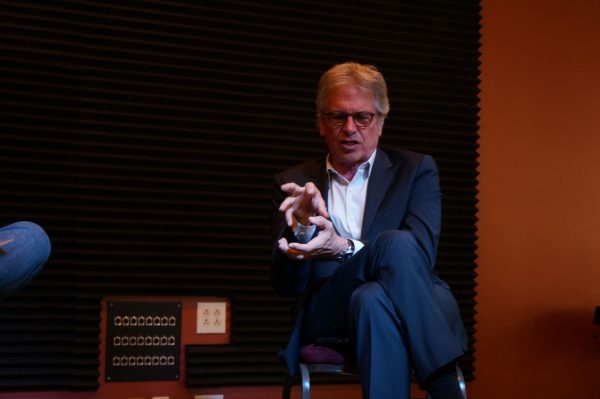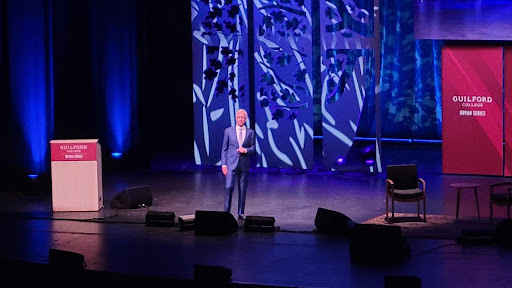Students create petition
Guilford College is not openly a sanctuary campus, but students are still calling on it to protect students regardless of citizenship.
The club Integrity for Guilford launched a petition ahead of a visit by the board of trustees on Feb. 24, calling on the campus to protect vulnerable students, particularly undocumented students, in the face of a rapidly changing immigration policy. While acknowledging that explicitly declaring the campus a sanctuary might draw unwanted attention, the petition calls on the College to protect students at risk through other means.
“We demand that under no circumstances should our community cooperate with the powerful forces of injustice currently operating in our country, whether these forces come in the form of (Immigration and Customs Enforcement) deregulation or other federal orders,” reads the petition, which has gathered over 300 signatures from students, parents, alumni and more. “Justice demands that we become a ‘brave space.’”
The petition was followed by a rally outside Founders Hall during the trustees’ visit. Students from Integrity for Guilford, Hispanos Unidos de Guilford and the Muslim Student Association spoke to their hopes for the College and encouraged the College to #BeBrave, a hashtag included in the petition.
A key request from concerned students is for clearer lines of communication between vulnerable students and trustees.
“I feel like you should have something on a Wednesday where the whole campus gets together and then the board of trustees … comes down to our level,” said junior Jessica Canar, a former president of HUG who spoke at the rally. “Because at this point I don’t know what they are thinking, you know?”
Some students are concerned that Guilford is falling short of its promises to vulnerable students.
“I feel like Guilford was (advertised as) this safe haven, or this Mecca, for people to come and be safe and be their authentic selves,” said sophomore Terry Daniels, who is a member of Integrity. “I don’t want to say that Guilford is not, but it’s not living up to its values and not trying to progress … in the way it portrays itself.”
The major request in the petition is that Guilford should be willing to protect undocumented students, even to the point of defying the law. The petition quotes Martin Luther King Jr.: “An unjust law is no law at all.”
Canar argued that such defiance could help the College in the long term, even if in the short term, it would cost the College.
“It would seem like there is going to be damage … financially,” said Canar. “But if all this gets out that Guilford College is an institution that helps undocumented students, … then that’s going to go all over the nation, and they are going to get benefited by that more than their loss in the beginning.”
Other students are less sure about the implications of breaking the law.
“I feel as an institution, there are a lot of things they would risk and put in danger (by breaking the law) like our other programs like (Every Campus a Refuge),” said junior Gerardo Marcos-Ocampo, student body president, who did not sign the petition. “We could just attract more attention to ourselves than we need to.”
Others hope for some flexibility in Guilford’s response to any incident that might trigger a conflict between the College and immigration enforcement.
“It’s very gray to me in terms of, do you do what your parents told you when you were younger, which is follow the law (and) abide by it, or do you not follow the law and suffer the consequences,” said junior Rashad Clark, former president of the Muslim Student Association, who also spoke at the rally. “(But) I’d rather sign onto something that does create some conflict between the College and the law and immigration. I’d rather do something than … sit on the fence.”
Regardless of how far the College is willing to go, it is clear that the students encouraging Guilford to #BeBrave want the administration and trustees to listen carefully to the needs of the most vulnerable students and to be clear about how the College will protect them.
“I can use my voice to reach out to the administration … and just invite them to talk one-on-one with these students that are targeted and hear their fears, their complaints and their ideas about what we can do going forward,” said Clark.









